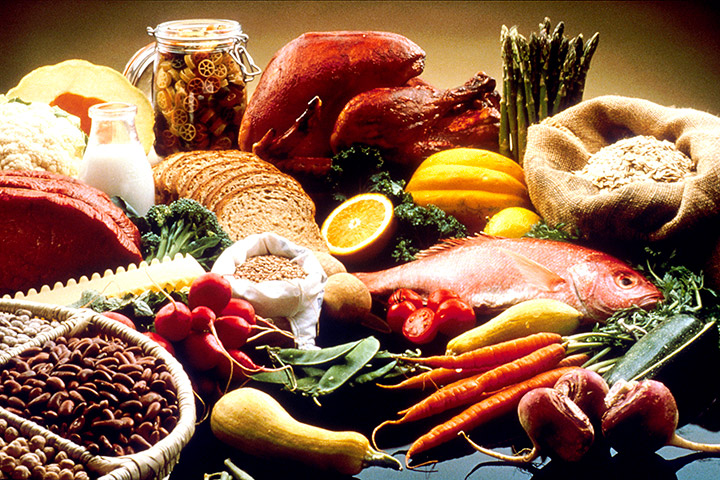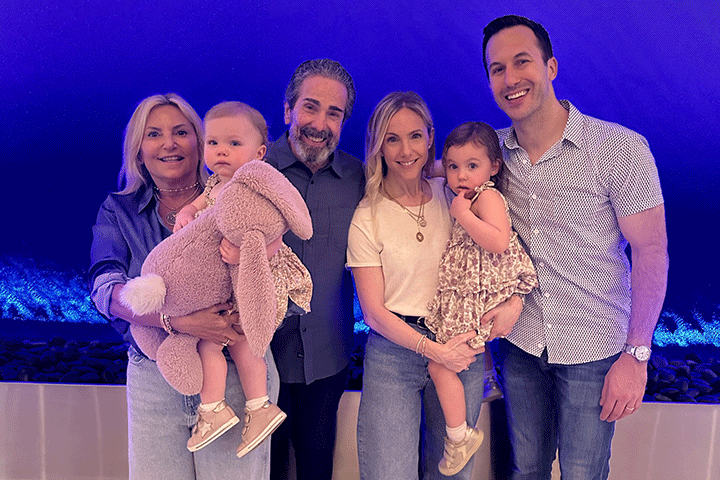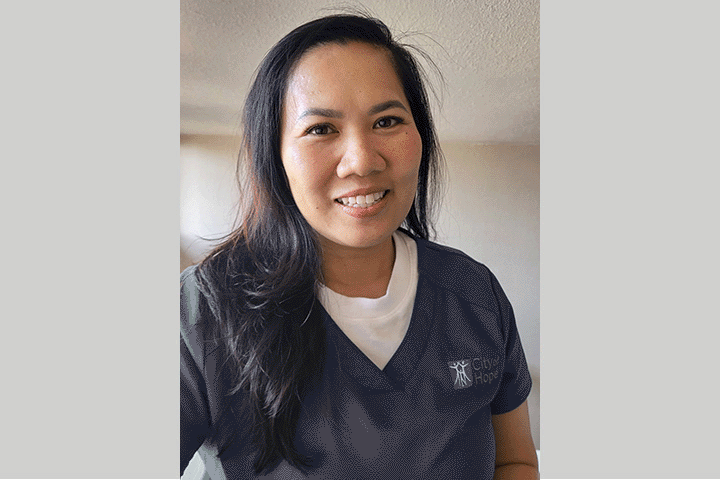What to Eat—and What to Avoid—When You Have Pancreatic Cancer

National Cancer Institue; Wikimedia Commons
Eating a high-quality diet and absorbing essential nutrients is critical when you have cancer. Unfortunately, pancreatic cancer and its treatments can make mealtime a challenge.
“Depending on the type of pancreatic cancer you have and where it’s located, your whole diet may change overnight,” says L.J. Amaral, M.S., R.D., clinical nutrition coordinator at Cedars-Sinai Center for Integrated Research in Cancer and Lifestyle in Los Angeles, California.
The pancreas converts food into fuel for our cells, but when cancer develops in this all-important organ, it may interfere with your body’s ability to digest food and absorb nutrients. Even if you can eat normally, pancreatic cancer often releases chemicals into the bloodstream called cytokines, which cause you to burn calories faster, leading to weight loss and decreased muscle mass. So, what can you do?

Eat This!
Whether you’re undergoing chemotherapy and radiation or facing surgery, treatment for pancreatic cancer can compromise your ability to eat and digest food. But if you focus on eating foods from the following five categories, you’ll be better equipped to bolster your healthy cells and nourish your body from the inside out:
- Protein.Since protein is the building block for cells, and pancreatic cancer therapies increase cell turnover, it makes sense that protein needs increase during treatment. Lest you think the occasional burger is off the table, Amaral suggests including animal-based foods such as red meat, chicken, and fish when you’re trying to meet your protein quota. “They’re a great source of heme iron, and that’s crucial when you’re going through treatment because your red blood cells get destroyed,” she says. Aim for less than 18 ounces per week and don’t char the meat (excessive charring is associated with increased cancer risk). Other good sources of protein include eggs, beans, nuts, and seeds.
- Healthy fats. While no one is recommending you load up on fried foods or saturated fats, healthy mono- and polyunsaturated fats are a great way to sneak in calories with less volume. Fats not only support cell growth, but they also help your body absorb important nutrients, including vitamins A, D, E, and K. Healthy fat examples include olives and olive oil, avocados and avocado oil, nuts, seeds (and nut and seed butters) and fatty fish like salmon.
- Easy-to-digest foods. Some treatment side effects can make it difficult to swallow or digest food. Choose foods that are chopped, soft, or boiled for easier digestion, particularly those that are high in nutrients and calories. Amaral’s go-to foods in this category include oatmeal, porridge, cooked vegetables, sourdough bread with a dab of nut butter or avocado, and broths and soups.
- Colorful vegetables. Colorful veggies are loaded with vitamins, minerals, and disease-fighting chemicals that can give your immune system a boost during treatment. Fill half your plate with colorful veggies (white veggies like onions, cauliflower, and even garlic for flavoring count, too!) and round out the other half with lean protein sources and healthy fats.
- Ancient grains. Ancient grains like quinoa, farro, amaranth, bulgur, and barley are chock-full of nutrients and fiber. With all three parts of the plant still intact, whole grains boast countless vitamins, minerals, and disease-fighting chemicals. A little secret: Some of these “grains” are actually seeds, hence their supernutrient status.
Drink Your Water. Staying hydrated is critical when you’re undergoing treatment for pancreatic cancer. Drink about half of your body weight in ounces daily (e.g., if you weigh 150 pounds, drink 75 ounces of fluid daily). And instead of filling up on artificially-sweetened or sugar-sweetened beverages, alcohol, or caffeine, choose water and nourishing bone broth (as long as the gamey taste doesn’t turn you off). Suffering from nausea or can’t stomach flat water? Try carbonated varieties like seltzer, including unsweetened flavored varieties.
Not That!
When you’re going through cancer treatment, comfort foods may be the only thing you can stomach—and that’s okay as an occasional indulgence. But when it comes to your daily diet, restricting the following foods is an important step in supporting your health:
- Dairy. During treatment, some people with pancreatic cancer become lactose intolerant, and dairy can also be inflammatory for a subset of patients. Amaral recommends limiting dairy to two or three servings daily. But nix it altogether if you develop a sensitivity.
- Green tea. True, green tea has incredible cancer-fighting potential. But if you’re undergoing treatment for pancreatic cancer, drinking too much green tea (more than two cups per day) could interfere with your treatment regimen.
- Sugar and artificial sweeteners. Whether you’re eating real sugar or one of the many sugar stand-ins (including stevia), sweeteners have no nutritional benefit. Yet they take up critical space in your diet. While calorie-free sweeteners may not produce the same metabolic effects, research suggests they take a toll on the gut microbiome.
- Excess fruit. You’ve probably heard that fruits of all types are good for you, and that’s true, but most people overdo it on fruit, Amaral says. Bananas can be particularly problematic. They’re constipating, and constipation is a common side effect of cancer treatments. Bananas are also high in sugar—one medium banana counts as two servings of fruit. To avoid indigestion, gas, and bloating, Amaral recommends eating three servings of fruit (or less) daily, and focusing on low-sugar varieties like apples, pears, and berries.
- Processed foods. Eating highly-processed packaged foods like chips, pastries, microwave meals, and processed meats may be associated with an increased risk of developing cancer. There’s also a strong association between eating processed foods and developing chronic conditions such as hypertension, high cholesterol, and diabetes. In fact, the World Health Organization has classified processed meat, including hot dogs, deli meat, and sausages, as a Group 1 carcinogen.
- Alcohol. In addition to flooding your system with empty calories, drinking alcohol can contribute to dehydration. The U.S. Department of Health and Human Services lists alcohol consumption as a known human carcinogen, and according to the National Cancer Institute, there’s increasing evidence linking alcohol consumption with pancreatic cancer risk.
The Bottom Line
It’s easy to look at food as “good” and “bad.” But cancer, like eating, is an emotional experience—and food can be a bridge to connecting with other people. So if eating a slice or two of bacon during a Sunday brunch will bring you joy, by all means, feel free to indulge.
The only caveat: “I often tell patients not to eat their favorite foods when they feel their worst because they may never want to eat it again,” Amaral says. She also emphasizes the importance of steering clear of foods that are linked to foodborne illness such as deli meats, open salad bars, and raw foods (e.g., raw milk, sushi, and raw unpasteurized honey).
Ultimately, there’s no one way to eat when you have pancreatic cancer. The key is to test out different foods and identify which foods make you feel better and which make you feel worse. Over time, you’ll learn to choose the foods and meals that nourish both body and soul, and that will serve you both during your cancer journey and over the long haul.




